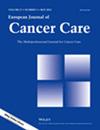The Interactive Relationship between the Positive Coping Style and Life Quality of Survivors of Pancreatic Cancer and Their Main Family Caregivers Based on the Dyadic Perspective: An Actor-Partner Interdependence Model
Abstract
Objective. To analyze the interaction of positive coping style and quality of life (QoL) between survivors of pancreatic cancer and their family caregivers based on the Conceptual Framework of Caring Experience of Cancer Family and Actor-Partner Interdependence Model (APIM). Methods. This study adopted a cross-sectional design that selected 200 pairs of survivors of pancreatic cancer and their family caregivers hospitalized in the First and Second Affiliated Hospitals of Nanjing Medical University from August 2020 to February 2021. Survivors of pancreatic cancer and their family caregivers completed Simple Coping Style Questionnaire and 12-item Short-Form Health Survey, whose results successfully built an APIM model. Results. The spousal relationship was the most common type of dyadic relationship. Family caregivers had higher levels of positive coping and QoL than cancer survivors. In terms of actor effects, the positive coping style of both survivors and caregivers significantly affected individual total scores of QoL and personal physical and psychological dimensions of QoL. As for the partner effects, the positive coping style of both survivors and caregivers significantly impacted their partners’ total QoL scores and the positive coping style of survivors significantly impacted their caregivers’ psychological level of QoL. Conclusions. The positive coping style of survivors of pancreatic cancer affects both their own QoL and their partner’s QoL. Examining mutual effects between coping styles and QoL among survivors and their informal caregivers is an essential first step in providing comprehensive and cooperative care. The study has been reviewed by the Chinese Clinical Trial Registry, and registration information has been sent to the central database of the World Health Organization International Clinical Trial Registration Platform for global retrieval. This trial is registered with ChiCTR2300074087.


 求助内容:
求助内容: 应助结果提醒方式:
应助结果提醒方式:


